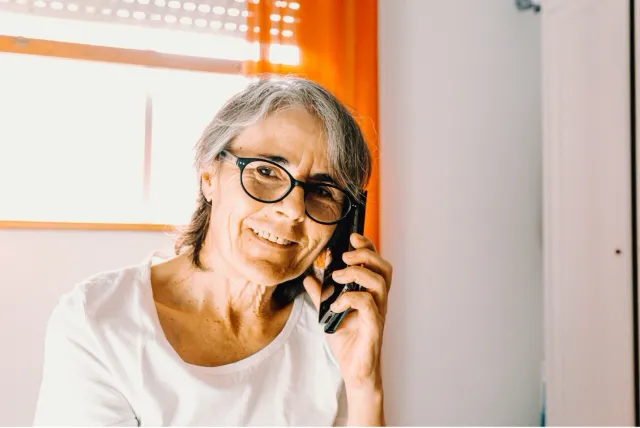A caregiver or family caregiver is anybody who provides unpaid help, or arranges for help, to a relative or friend because they have an illness or disability such as cancer. Help can be physical, emotional, spiritual, financial or logistical support. Long-distance caregivers are those who live at a distance from their loved one with cancer.
Even if you live far away, you may find yourself in the position of overseeing your loved one’s care (as the primary caregiver). Or you may share caregiving duties with other siblings, hired support, friends, or a parent (as the secondary caregiver). Caregiving can continue for a lengthy period of time. It can include periods when care needs are intense and periods when the care needs are minimal.
This responsibility can feel stressful or overwhelming, but with reliable information, practical guidance, and support, you will feel more control over the situation. Many community agencies and services exist that can help you and your family handle a wide range of questions and challenges. Remind yourself that there is no right or wrong way to provide help. Your role will evolve along the way, so it’s wise to take small steps.
What Support Can a Long-distance Caregiver Provide?
Before jumping in, it helps to ask questions and listen. Assess the situation and determine what you can do versus what others can do — rather than assume or guess that you know what’s best. To assist a loved one with cancer, many things can be done from afar, such as research and information gathering, coordinating and accessing services, assisting with decisions, and providing emotional support. Here are ways you can help:
- Gather cancer treatment and post-treatment information through contacts, online research, and phone calls
- Use organizational skills to keep track of appointments, health insurance documents, and medical bills
- Make arrangements with neighbors and friends to help with transportation, household chores, or meals
- Keep family and friends updated
- Make visits and offer respite to local caregivers
These tasks are most helpful when discussed with your loved one and others who are also helping, and when done in a regular, coordinated manner. It also helps to keep written files that are accessible, so everyone involved can easily find important information and contacts.
Build a Helping Network Among Friends & Family
Often family caregivers neglect to take care of themselves when they are consumed with helping someone else. Pace yourself and carve out time to manage your own needs and responsibilities. Knowledge and confidence will grow over time. Sometimes you may have to step sideways or even backwards before you make progress. But bit by bit, you will sort out the challenges and identify workable solutions. What you and your loved one find supportive will be unique — the important things to remember are that you are not alone and that you can help.
How Is Long-distance Caregiving Different?
For obvious reasons, it’s difficult for a long-distance caregiver to be involved with day-to-day necessities. Unless it’s absolutely necessary to provide direct support, long-distance caregivers may feel more able to gather information and assist with long-range plans.
It is important to periodically evaluate the situation, determine what you can do to help, and adapt your actions as needs change. When you don’t live nearby, you may feel that you’re not doing enough or that what you’re doing lacks value. Yet, the role you play from afar (and during your visits) can be very significant.
Most often, you will count on phone calls, emails, or text messages to stay in touch. You and your loved one (or the primary caregiver) can establish a plan for how often and when you are updated. Be aware that long-distance caregiving can take a toll on your personal life and can become costly both in terms of time and money. Long-distance caregivers must make hard choices such as using money to pay for needed medical supplies or depleting family vacation funds for repeated caregiving trips. Learn how to talk about the financial side of cancer and where to go for help.
It is important to prioritize what you can and cannot do, and find balance between your personal responsibilities and being a caregiver.
